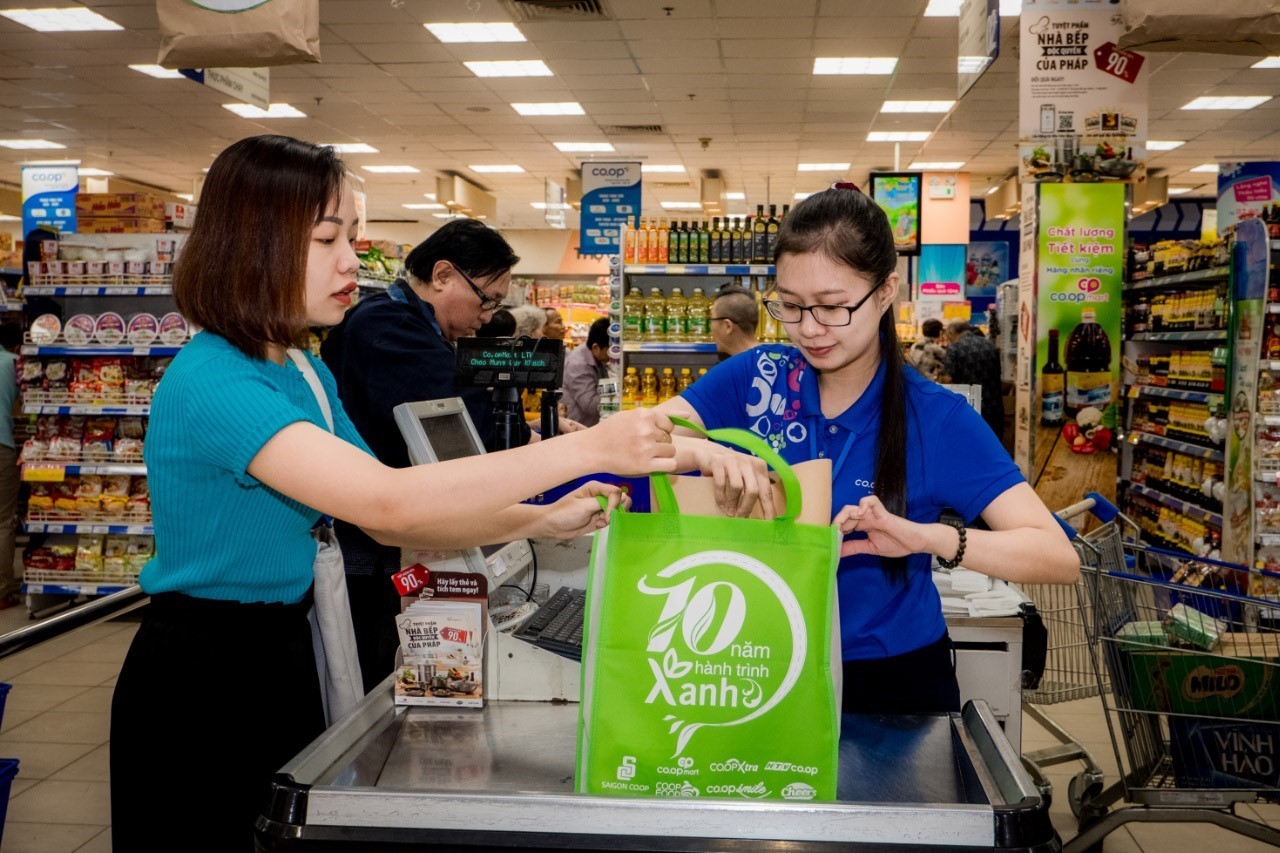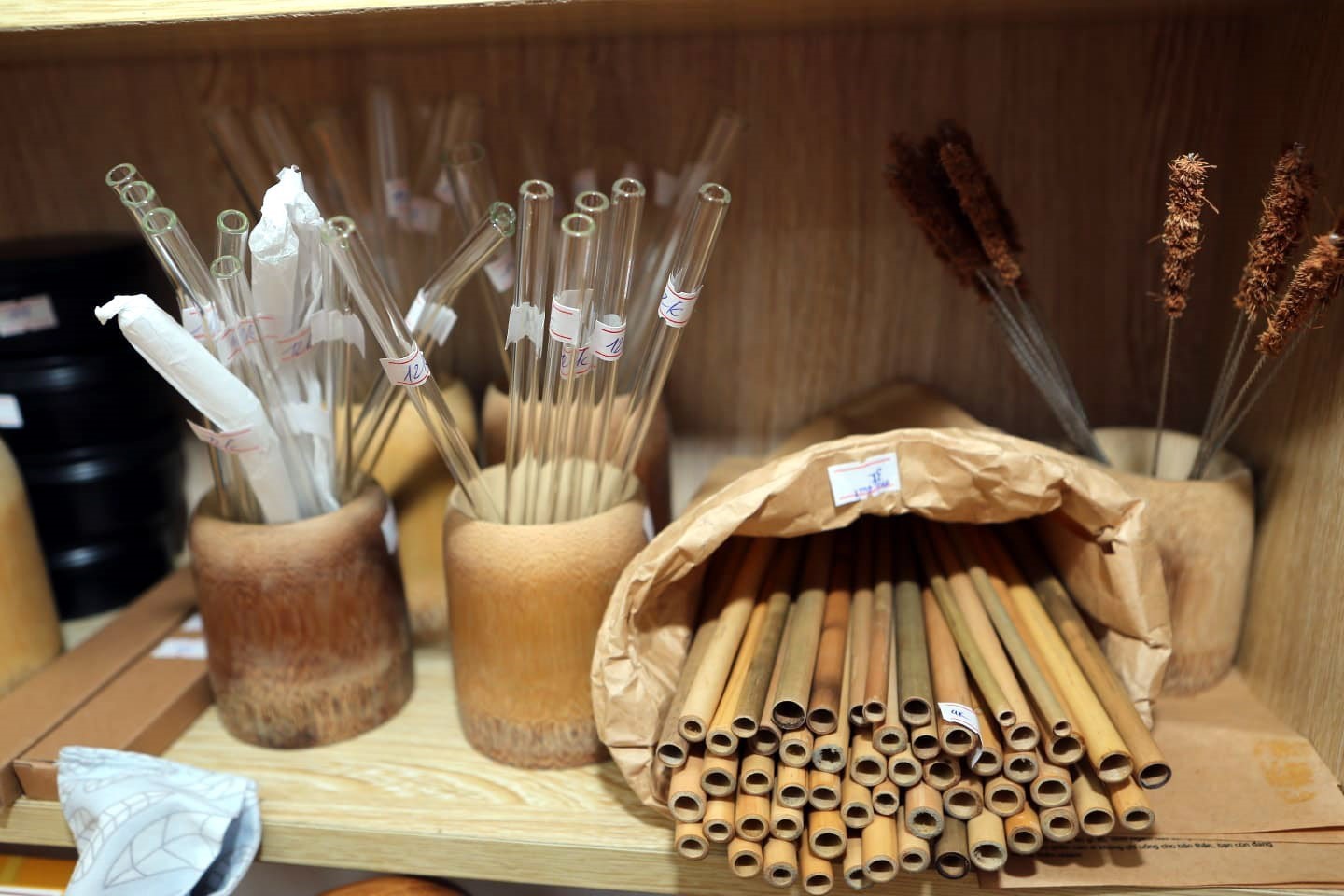Vietnam has joined global and regionalcooperative mechanisms to battle plastic waste - a big headache for the wholeworld. However, every effort must begin with raising public awareness of plastic footprint.
Young generation should be in shape to combat plastic waste
As plastic items can take hundreds or even thousands of years to decompose in landfills, it is a must now to shape up the habit “saying no to plastic waste” for all people, particularly the youths. Therefore, the education sector should be the first to impart the idea to young people.
Recently, Nguyet Linh, a 5th-grade student at Marie Curie primary school in Hanoi, sent a letter via email to the principals of 40 primary and secondary schools in Hanoi, asking them to consider the environmental impacts of releasing balloons into the sky on the occasion of new school year. Her small idea actually has great significance.
“Saying no to plastic waste campaign should get cracking from the education sector”
Stopping the tradition of releasing balloons into the sky on the opening day of the school year may be giving up a joyful ritual for young students, but it opens the door for a larger dream to protect the life of all creatures on the planet in the face of the urgent issue of plastic pollution.
Balloons are a serious threat to wildlife simply because they are colouful and bright, so wildlife might mistake them for food, and the strings can wrap around their bodies and make it difficult for them to swim or breathe.
Vietnam had more than 23 million students during the 2018-2019 academic year, with primary students accounting for 8.3 million. The number of students is believed to increase in the 2019-2020 school year.
The amount of plastic garbage will be reduced significantly if schools make change in their regulations on schoolbook wrapping and school supplies.
As requested by parents, several schools have decided that using plastic covers for notebooks and books are not compulsory. However, many schools are reluctant to change their mind.
Nguyen Hoang Hoa, a parent in Thanh Xuan district, said: “Instead of covering books with plastic films or using plastic book baskets to make the classroom look neat and tidy, we should teach our kids how to keep the class clean. Although the plastic items are durable, they will be discharged into the environment sooner or later.”
Worrying that “the earth is becoming a plastic planet”, Hoa called other parents to join hands to raise their voice against use of plastic items at schools, as a measure to reduce plastic waste generation.
Ha Thi Toan, a teacher in Cau Giay district, shared the same viewpoint, saying besides a waste of money, book covers are contributing to kill the environment.
As the new school year is near, the education sector should add more environmental protection rules, and organise activities to promote the “saying no to plastic waste” at all schools.
Plastic limiting movement must be expanded
Plastic items are generally cheap and convenient; however, they have created critical impacts on human health and the environment. According to the Ministry of Natural Resources and Environment, Vietnam discards around 2 million tonnes of plastic waste into the environment each year.

Prime Minister Nguyen Xuan Phuc and participants join a walking event to call for the community to act against plastic waste (Photo: VNA)
In June 2019, Prime Minister Nguyen Xuan Phuc launched a national campaign on plastic waste prevention, particularly single use goods. He emphasised the need to take practical and concrete measures to control and reduce plastic waste.
As many as 13 million tonnes of plastic trash are discharged into oceans each year, which has left negative impacts on the living environment, people’s health and sustainable development of each nation, said PM Phuc.
Therefore, he asked competent ministries, agencies, sectors and localities to outline programmes and plans on phasing out the use of plastic products and work to realise the target of not using single-use plastic products in urban markets, convenience stores and supermarkets by 2021, and nationwide by 2025.
The Government leader particularly mentioned the role of the press in raising public awareness of the issue, saying the communication work should focus on typical programmes and models that contribute to plastic waste reduction such as Green Sunday project in Thua Thien-Hue, “Say no to plastic waste in Hoi An-Cu Lao Cham”, and using natural wrapping in several supermarkets, among others.
In response to the Government leader’s call, the Ministry of Natural Resources and Environment use stainless steel water bottles instead of plastic ones at its conferences. Besides, a campaign called “Act to reduce plastic waste pollution” was launched, urging each staff to mobilise their family members to say no to plastic products.
Meanwhile, the Ministry of Health, in collaboration with the United Nations Development Programme (UNDP), organised a national teleconference on August 16 on the deployment of measures to minimise the use of plastic waste in the health sector.
Minister of Health Nguyen Thi Kim Tien asked health facilities nationwide to work to raise awareness and change the habit of using plastic bags and disposable plastic products by health workers, patients and their caretakers.
Furthermore, the facilities are required to design goals, plans and roadmaps for the reduction of plastic waste, and practice the sorting of plastic waste for disposal and recycling. They are also advised to conduct research and apply measures to minimise plastic waste in the health sector and arrange forces to implement the plans.
Many supermarket chains in Vietnam such as Coop.mart and Big C are moving to go green by replacing plastic packaging with natural materials such as banana leaves in an effort to reduce plastic waste.
Nine major multinationals and local giants have joined hands to create a Packaging Recycling Alliance (PRO), aiming at 100 percent recycling of packaging materials by 2030.
The non-profit voluntary organization also aims to boost the recycling infrastructure in the country, according to an agreement signed in June. The founding members of PRO Vietnam are TH Group which runs the popular TH True Milk brand, Coca-Cola Vietnam, Friesland Campina Vietnam, La Vie, Nestle, Nutifood, Suntory PepsiCo Vietnam, Tetra Pak and Universal Robina Corporation. Thirty more corporates are expected to join recycling programmes by the end of 2019.
The alliance will promote the collection and recycling of packaging among members by increasing recycling rates and minimising the amount of used packaging dumped into the environment.
In addition, several Vietnamese airlines such as Vietjet and Bamboo have already outlined plans to use environmentally-friendly products on their flights.

Co.opmart supermarket chain has encouraged its customers to use fabric bags instead of plastic ones since 2011 (Photo: VNA)
Furthermore, a wide range of campaigns have been organised nationwide to protect the environment. Some examples are “Green Sunday” and “Saying no to plastic bag and single-used plastic products” campaigns in the central province of Thua Thien Hue. Many organisations and private companies nationwide encourage people to exchange plastic bottle for trees, or some coffee shops stop serving customers with plastic straws, among others.
More legal frameworks needed
Currently, there is neither regulation detailing the management, collection and treatment of plastic waste, nor specific policies to encourage local firms to invest in technologies or move to produce compostable goods rather than plastic items.
Many people believe that it is crucial to enhance communication work, encourage campaigns and good practices against plastic waste, promote initiatives to change consumers’ habit, and honour valuable models and initiatives.

Eco Refill shop in Hanoi sells eco-friendly products (Photo: VNA).
The State should have suitable policies and strategies defining the production and use of compostable products, as well as support businesses to join trade promotion event to popularise their environmentally-friendly products, and control waste, among others.
Competent authorities must impose stiffer penalties for any one illegally discharging waste into the environment. Particularly, corporate’s responsibility for recycling and treating waste from their products must be legalised.
Changing the habit of using plastic products and single-use items will help build a green Vietnam and green Earth./.